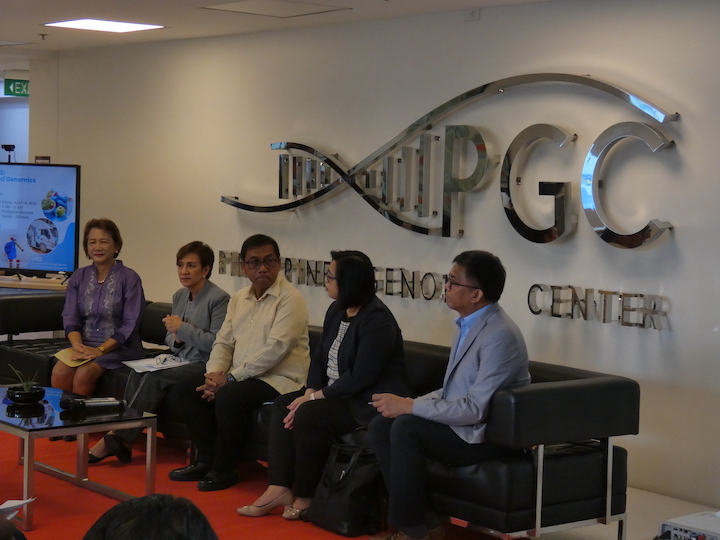UP Scientists feted for pioneering genomics work
Published: April 28, 2023
By: Eunice Jean C. Patron

From shedding light on mythological creatures to helping fight crime, the Philippine-led study of the basic building blocks of life has come a very long way. Ever since the inception of the country’s genomics program in 2009, scientists from the University of the Philippines Diliman – College of Science (UPD-CS) have been advancing the country’s genomics research in many surprising ways.
UPD-CS scientists lead the way
Major outbreaks worldwide, such as dengue, SARS, and H1N1, brought the Philippines to realize the vital role of genomic research in predicting, diagnosing, and treating diseases before they spread to a greater degree.
In the same year that the Department of Science and Technology (DOST) set the country’s genomics agenda, UP established the Philippine Genome Center (PGC), which aims to improve the
quality of the lives of Filipinos through genomics-focused multidisciplinary research. PGC was founded by four scientists, two of whom are from the UPD-CS: Dr. Gisela Concepcion of the Marine Science Institute (MSI) and Dr. Cynthia Saloma of the National Institute of Molecular Biology and Biotechnology (NIMBB), who also currently serves as the Center’s Executive Director.
UPD-CS scientists also helm the PGC’s Executive Committee: Institute of Biology’s (IB’s) Dr. Neil Andrew Bascos, Director of the Protein, Proteomics, and Metabolomics Facility, and Dr. Michael Velarde, Director of the Biobank Core Facility; and Natural Science Research Institute’s (NSRI’s) Dr. Maria Corazon De Ungria, Director of Biodiversity, Ethnicity, and Forensics.
Genomics in justice, mythology, and beyond
In DOST’s recent press conference, “From Labs to Lives: Impact of DOST-led Genomics Program in PH,” held on April 14 at the PGC, UPD-CS scientists presented and discussed the significant milestones and progress that the Philippines’ genomics program has achieved over the last decade.
In particular, Dr. De Ungria showcased the NSRI DNA Analysis Laboratory’s locally-developed sexual assault investigation kit (SAIK) that doctors can use to facilitate justice for victims. The event also highlighted advances in understanding and testing for dystonia parkinsonism, a rare genetic disease thought to be the basis for the “aswang” creatures of Philippine mythology. The speakers also touched on new studies in improving the breed and stock of Philippine cows implemented by the Philippine Carabao Center.
The event was capped by the unveiling of the PGC’s new Protein, Proteomics, and Metabolomics Facility (PPMF) that will enable the Center to further its research into the effects and end-products of genes’ functions in the body.
Filipino researchers have vastly expanded genomics applications in health care in the Philippines in various ways. Through their pioneering research studies and contribution to the genomics program of the country, UPD-CS scientists continue to use science for national progress, embodying UP’s commitment to serving the Filipino people.
For interview requests and other concerns, please contact media@science.upd.edu.ph.
